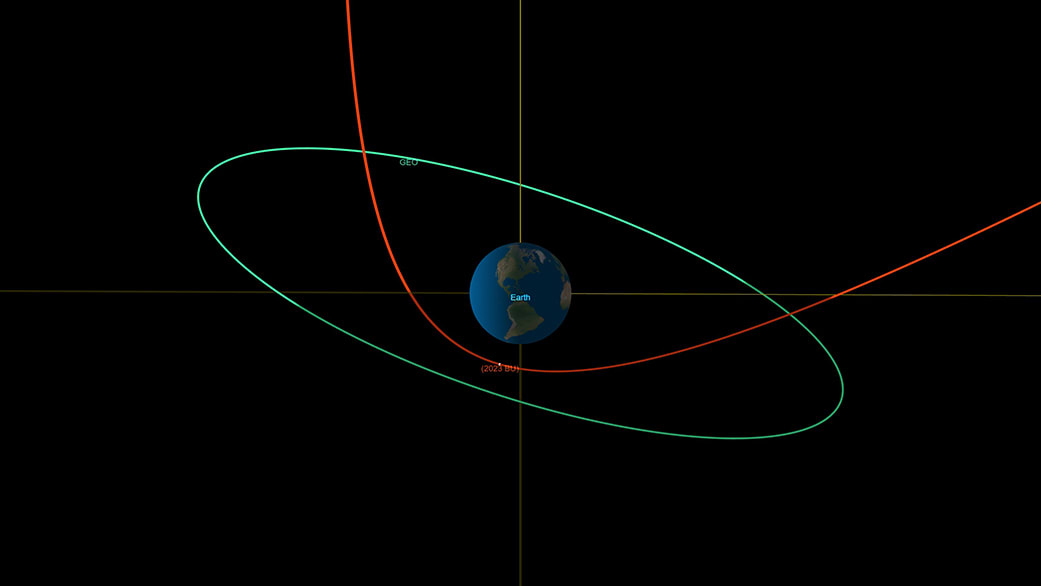An asteroid is expected to pass historically close to Earth on Thursday

A free daily email with the biggest news stories of the day – and the best features from TheWeek.com
You are now subscribed
Your newsletter sign-up was successful
A small asteroid will come closer to the Earth than some satellites on Thursday evening, passing over the southern tip of South America, writes NASA. Expected to pass over at 7:27 pm EST, the asteroid does not pose a risk to the planet.

The celestial body will be within 2,200 miles of the planet, making it the fourth-closest encounter to date. "It's not going to break up," said Davide Farnocchia, a navigation engineer at NASA's Jet Propulsion Laboratory. "It's going to zoom past Earth, say hello, and move on." Even if the asteroid was at risk of hitting Earth, it would likely burn up in the atmosphere long before doing any damage because of its small size. It is estimated to be between 11.5 feet to 28 feet.
The asteroid, called 2023 BU, was discovered by Gennadiy Borisov, an amateur astronomer, from his observatory in Nauchnyi, Crimea, reports The Wall Street Journal. Within three days of the discovery, multiple observations allowed for the path of 2023 BU to be refined. Approximately 100 tons of space material makes it to Earth every day, however, most of it is small, going undetected. But scientists are working to better detect objects approaching Earth to prevent larger damage, which was the goal of NASA's DART mission in 2022.
The Week
Escape your echo chamber. Get the facts behind the news, plus analysis from multiple perspectives.

Sign up for The Week's Free Newsletters
From our morning news briefing to a weekly Good News Newsletter, get the best of The Week delivered directly to your inbox.
From our morning news briefing to a weekly Good News Newsletter, get the best of The Week delivered directly to your inbox.
"Besides discovering objects, we are also making preparations to be able to deflect them in case that was ever needed," said Farnocchia. "The DART mission is a great example of that."
Once 2023 BU passes Earth, its "orbit will be more elongated, moving it out to about halfway between Earth's and Mars' orbits at its farthest point from the Sun," and will "complete one orbit every 425 days."
A free daily email with the biggest news stories of the day – and the best features from TheWeek.com
Devika Rao has worked as a staff writer at The Week since 2022, covering science, the environment, climate and business. She previously worked as a policy associate for a nonprofit organization advocating for environmental action from a business perspective.
